1. They Wear Their Emotions on Their Skin
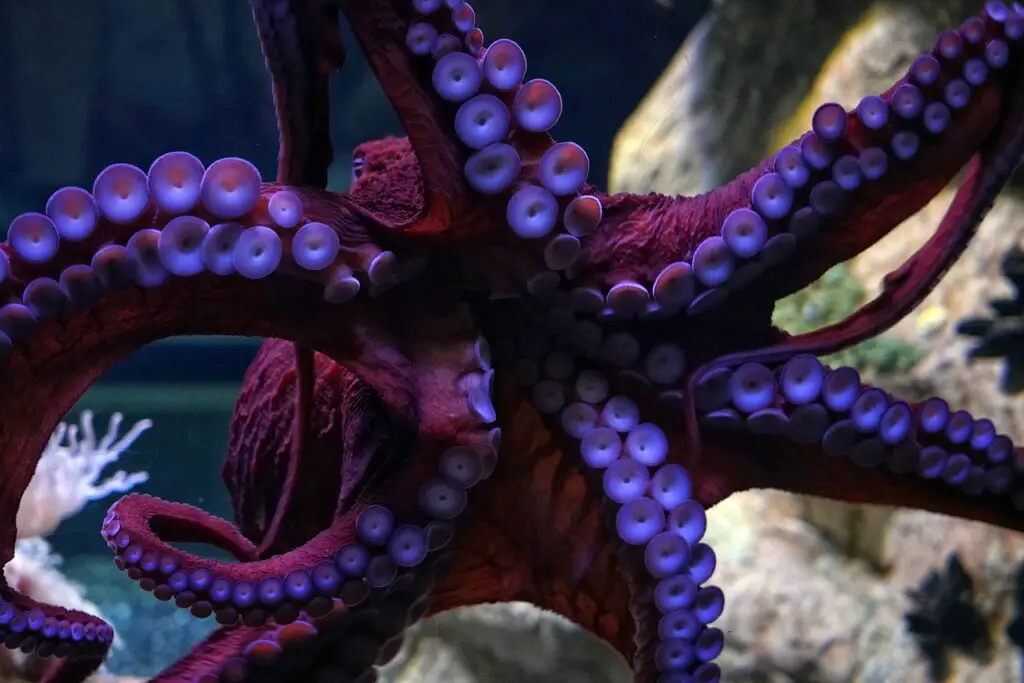
Octopuses don’t just feel emotions—they broadcast them with a built-in mood ring! Thanks to chromatophores in their skin, these sea geniuses can change color and pattern in an instant. Angry? Bright red. Stressed? Mottled gray. Feeling sneaky? Hello, camouflage! This ability isn’t just for show—it’s how they communicate fear, aggression, or even curiosity to predators and potential mates. Watching an octopus shift colors feels like eavesdropping on a deeply personal conversation. They’re living proof that emotions aren’t just skin-deep—they can be skin wide!
2. They’re Masters of Curiosity (and Mischief)
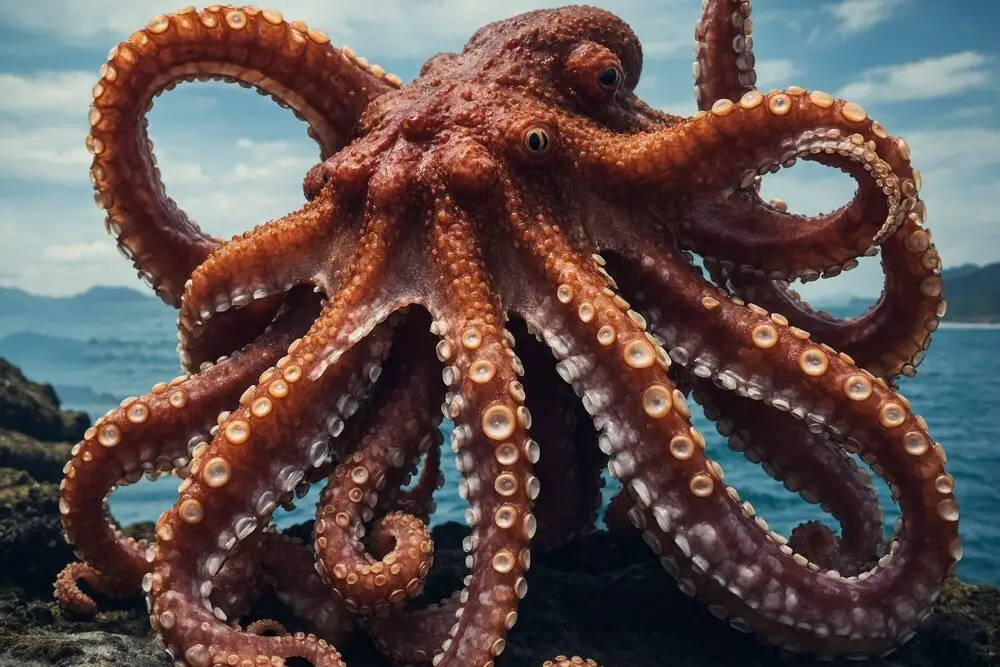
Octopuses aren’t just smart—they’re nosy! These creatures love exploring their environment, whether it’s unscrewing jar lids, escaping aquariums, or messing with underwater cameras. This curiosity reveals their problem-solving abilities and their knack for playful mischief. They’re the ocean’s natural escape artists, capable of opening doors, rearranging objects, or straight-up pranking their keepers. Why? Because they’re emotionally engaged and love to explore. An octopus isn’t just surviving—it’s thriving by interacting with its surroundings, reminding us that curiosity might be the most delightful emotional trait of all.
3. They Form Bonds (and Hold Grudges)
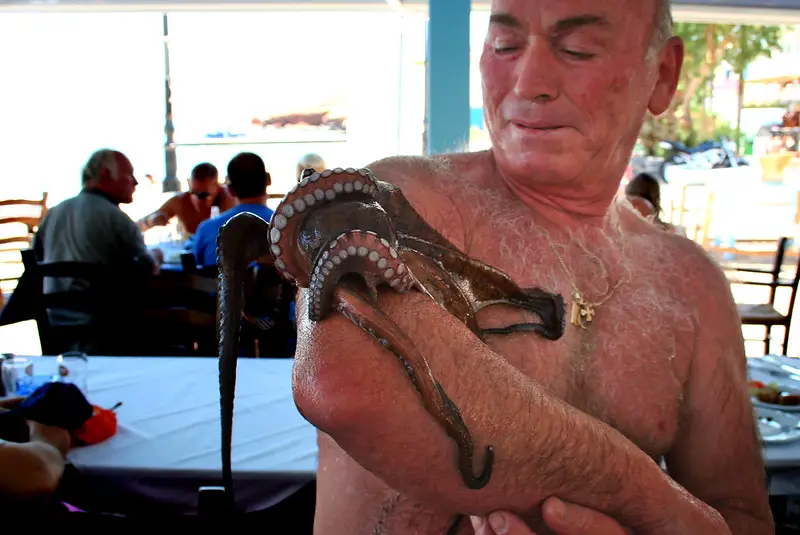
Octopuses are known to recognize individual humans and can form bonds with their favorite caretakers. They’ll greet friendly faces with a playful squirt of water or a gentle touch of a tentacle. But beware—they also remember who annoyed them! Researchers have documented octopuses squirting water at people they dislike or ignoring them altogether. This ability to distinguish friend from foe shows emotional depth and an impressive memory. Whether they adore you or can’t stand you, octopuses aren’t shy about showing how they feel.
4. They Get Bored Without Enrichment
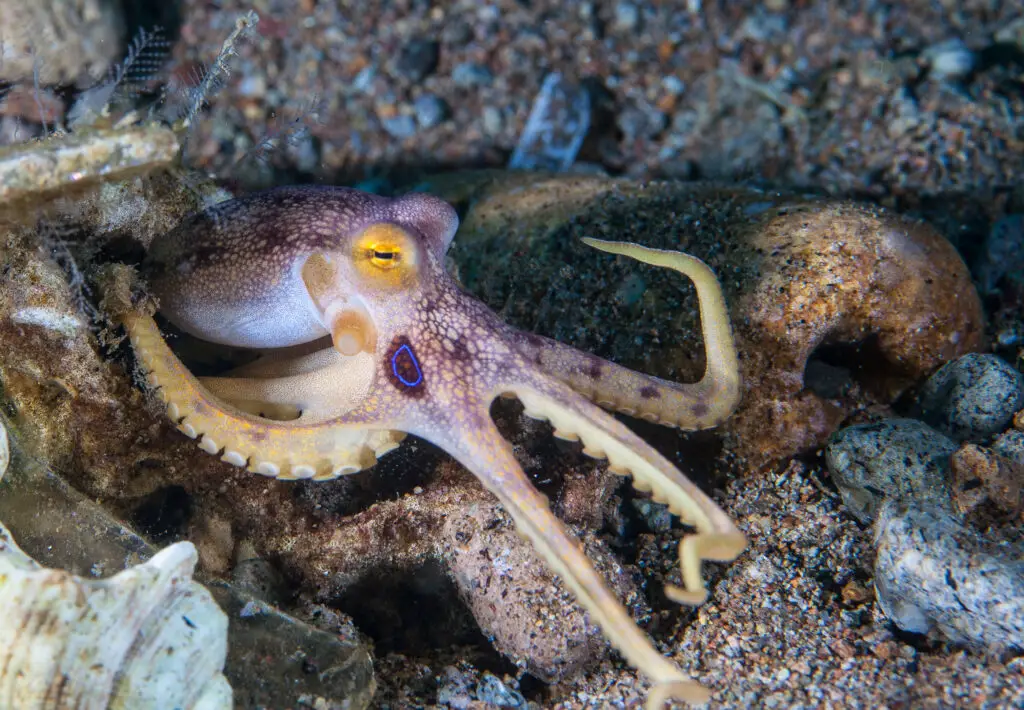
Just like a bored toddler, an octopus without stimulation can get cranky. In captivity, they thrive on puzzles, toys, and new challenges to keep their sharp minds occupied. If left unstimulated, they can become stressed or even depressed. One octopus famously took to rearranging its tank decorations every day just to mix things up! Their need for mental stimulation highlights their emotional complexity—they’re not just surviving; they’re craving engagement. Give an octopus a puzzle, and you’ll see joy in eight arms.
5. They Mourn, Sacrifice, and Show Care
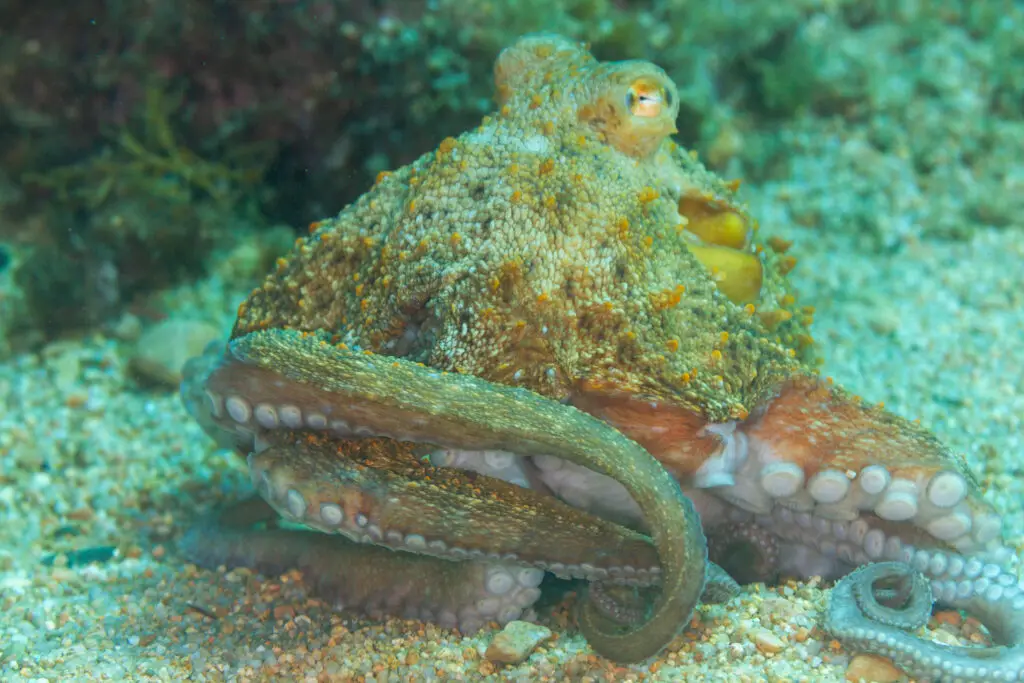
Octopuses demonstrate behaviors that look a lot like grief and sacrifice. After laying eggs, a female octopus spends her final days protecting and nurturing them, often refusing to eat. This selfless act ensures the next generation’s survival, but it also signals an emotional connection to her role as a mother. Some researchers even believe octopuses experience a form of mourning when they lose their young or territory. Their emotional sacrifices remind us that even beneath the waves, there’s a deep connection between survival and love.
6. They Can Solve Puzzles with Stunning Precision

Octopuses have been observed solving complex puzzles, such as opening jars, navigating mazes, and escaping enclosures. This isn’t just about smarts—it’s about emotional investment in solving problems. They’ll approach challenges with focus, determination, and even a hint of frustration if they fail. Studies show that octopuses remember solutions and improve over time, demonstrating both intelligence and the ability to adapt emotionally to challenges. Their problem-solving skills suggest they’re not just reacting instinctively—they’re thinking and feeling their way through obstacles with remarkable finesse.
7. They Show Playful Behavior
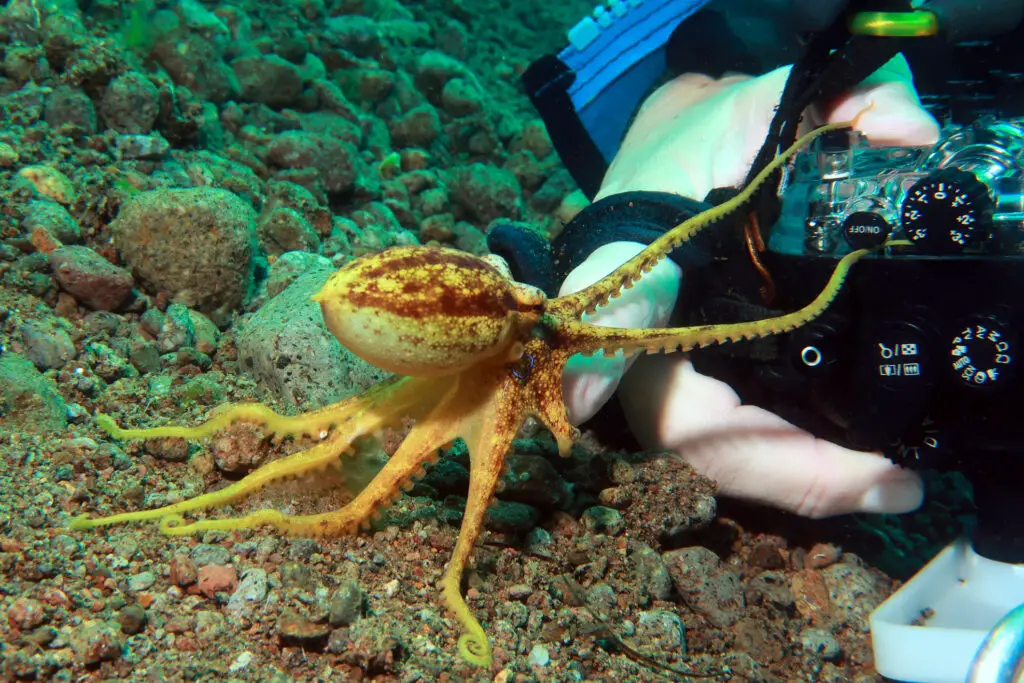
Playfulness, often considered a sign of emotional depth, is a trait octopuses exhibit in abundance. Researchers have documented octopuses playing with objects like floating bottles, toys, and even their food. They’ll repeatedly engage in activities that have no direct survival purpose, which is a hallmark of higher cognitive and emotional function. One octopus famously used a stream of water to repeatedly bounce a ball in its tank—just for fun. This playful nature reveals an emotional richness that’s rare among non-mammalian creatures and makes them all the more endearing.
8. They Experience Stress and Anxiety
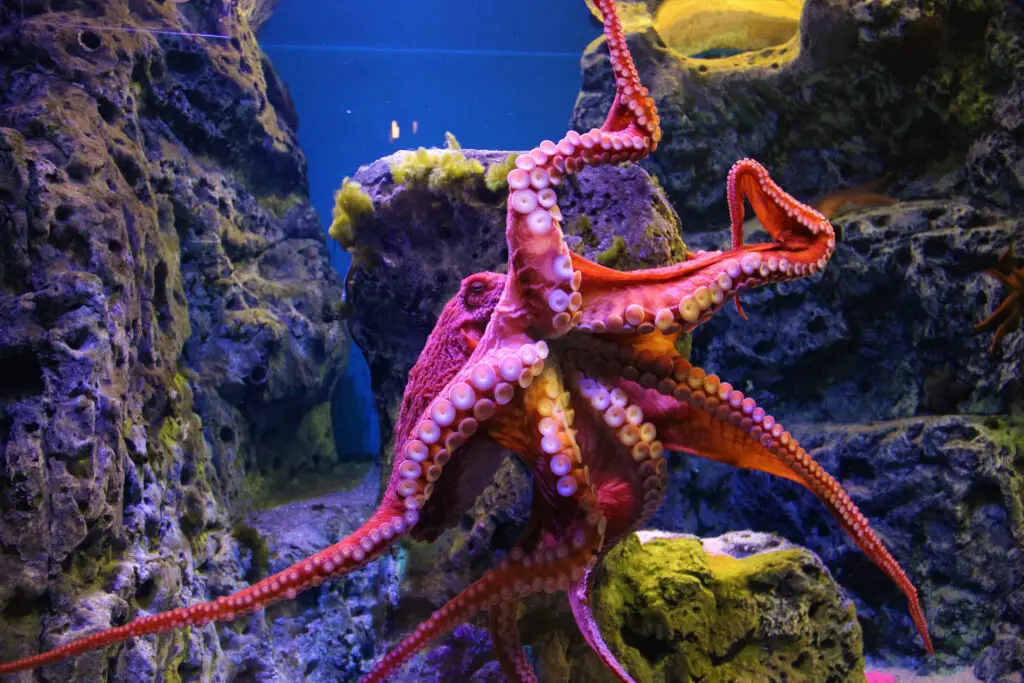
Octopuses are highly sensitive to their environments, and stress can impact their behavior significantly. Environmental changes, predators, or even over-handling by humans can lead to visible signs of distress, such as erratic movements, color changes, or hiding. Some octopuses even display behaviors resembling anxiety, like excessive pacing in their tanks. This emotional vulnerability makes their well-being dependent on thoughtful care and respect for their needs. Their ability to experience stress highlights just how emotionally aware they are—these are creatures that feel deeply, even if it’s not always visible.
9. They Exhibit Individual Personalities
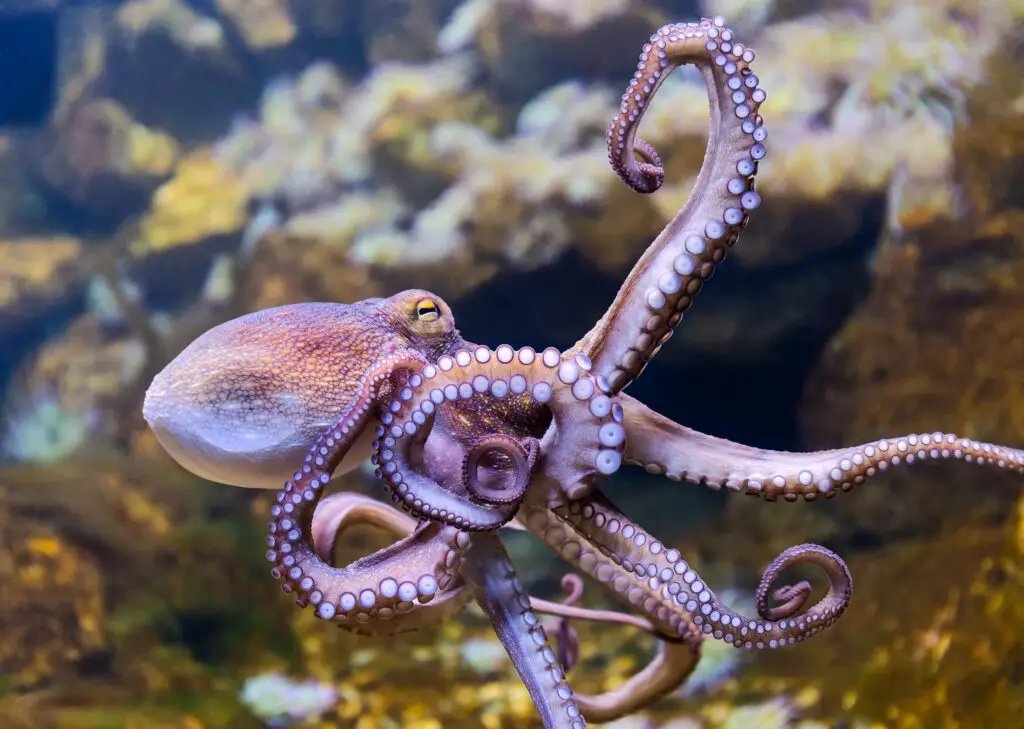
No two octopuses are exactly alike. Studies have shown that individual octopuses display unique temperaments, ranging from shy and reserved to bold and curious. Some are more playful, while others are cautious or outright mischievous. This diversity of personality suggests a level of emotional complexity that sets them apart from most marine animals. One octopus might greet a researcher with enthusiasm, while another hides away in its den. Their individuality shows that octopuses aren’t just creatures of instinct—they’re complex beings with distinctive emotional worlds.
10. They Display Self-Awareness

Octopuses have shown behaviors that suggest a level of self-awareness rarely seen in marine animals. They’ve been observed using tools, such as coconut shells for shelter or rocks to block predators, indicating a sophisticated understanding of their surroundings and their role in it. Some studies even hint at the possibility that octopuses recognize themselves in mirrors, though this remains debated. Self-awareness is a cornerstone of emotional complexity, and octopuses continually surprise scientists with how deeply they seem to understand themselves and their environment.
11. They Experience Joy in Freedom
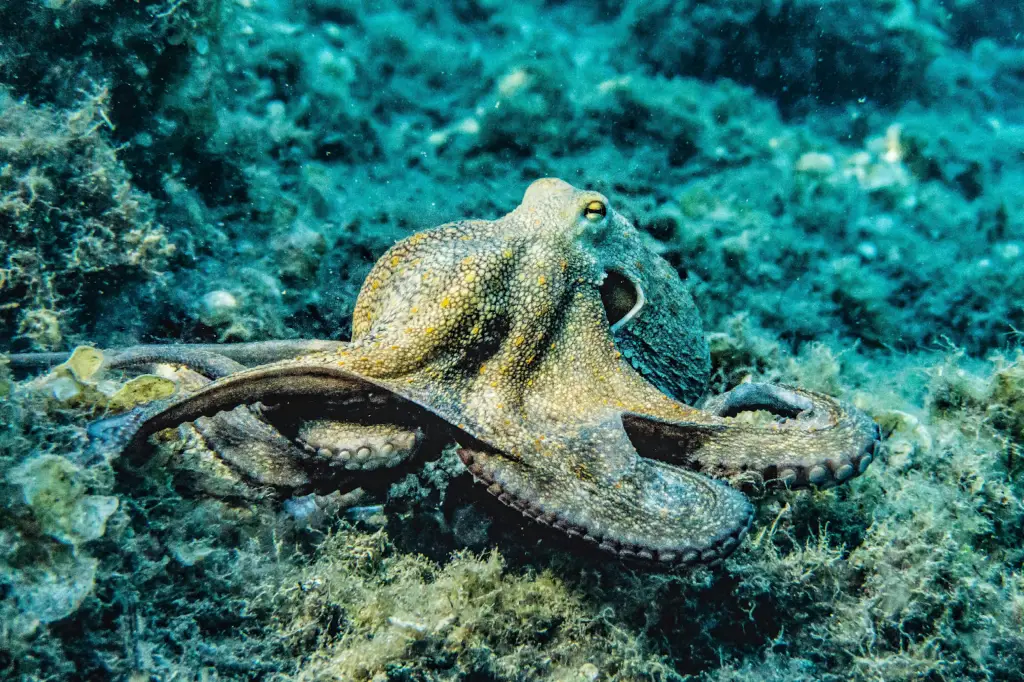
Octopuses are natural explorers, and their behavior in the wild shows a sense of joy in freedom. In captivity, they often seek ways to escape enclosures, not just for survival but seemingly out of curiosity and a desire for independence. Some have been known to “break out” of tanks and wander around aquariums before returning to their homes. Their love for exploration and dissatisfaction with confinement reflect emotional complexity. Octopuses aren’t content with routine—they crave discovery, autonomy, and excitement, proving they live life with more zest than most of us humans!


